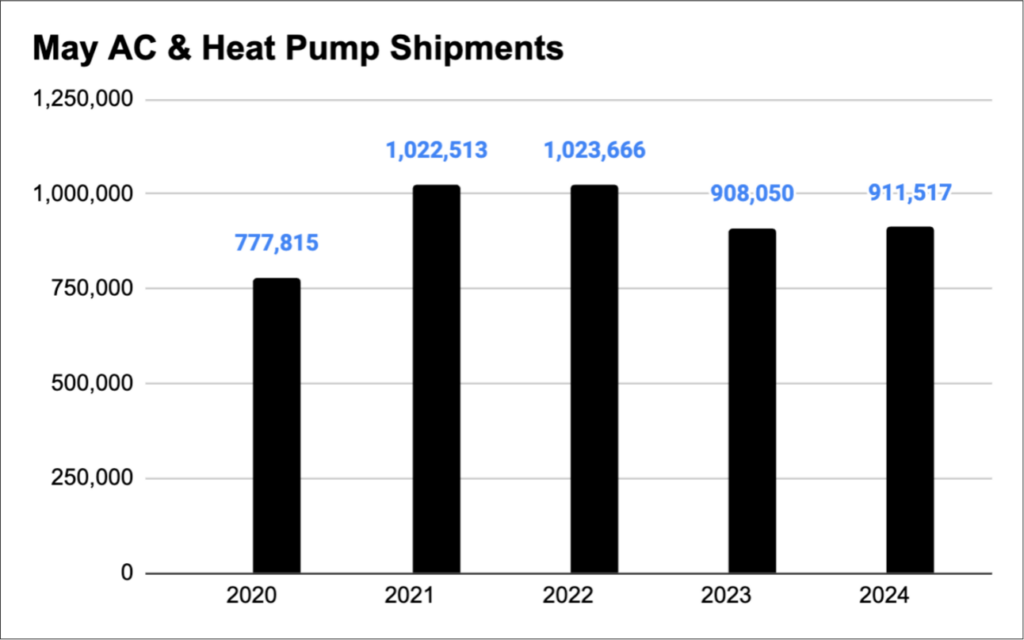Q&A: The state of recruiting in HVAC
A conversation about recruiting in HVAC, including onboarding, employee referral programs, handling limited budgets, and more

Image: Work With Your Handz
This story was written in partnership with Work With Your Handz. Learn more.
I sat down with Work With Your Handz CEO Kelly Presgrave to talk all things recruiting in HVAC, from onboarding and referrals to working with a limited budget and more. Below is our conversation, lightly edited for clarity.
How do you think smaller to mid-sized contractors can think about recruiting, given the impacts of consolidation?
- Private equity-backed companies have a sense of urgency and move fast. Whether that’s because they have the call volume or resources to do it, there’s just no hesitation. They’re making same-day offers and getting people started ASAP — there’s no waiting until next week.
- Not everybody’s able to do that, but if you’re a small to medium-sized business with PE in your market, I think the takeaway is that the other companies are moving fast, so you need to be quick if you want the talent.
Anything else, aside from speed?
- A lot of contractors say, “This is the type of person I’m looking for; I’m not going outside of my comfort zone.” They only want someone with five to six years of experience. They have these parameters and don’t look outside the box.
- We don’t recommend hiring people who aren’t a fit, but there’s a case to be made for giving people a shot. Even if they’re not a rockstar, they might be a diamond in the rough.
Tactically speaking, how can someone with a limited budget think about recruiting?
- I’d say guerilla marketing. It takes longer, but going to supply houses, talking to everybody you know, having events at your office where you invite people to see your shop, a robust internal referral system for your current staff, and getting out into your community.
- Most people in that situation want techs who can hit the ground running, and that’s the catch-22. They don’t have the money for recruiting, and they can’t take on apprentices because they don’t have anyone to train them.
- They’re stuck trying to find experienced techs who can start running calls on day one, and that’s the hard part. [But] I wouldn’t even worry about posting a job on a job board — I’d hit grassroots.
Do you have an example of a robust internal referral system?
- One of our clients would send apprentices out with a service tech for 6-8 months of apprenticeship, and as long as that technician was with the company, they got a kickback. I think it was $100 a month.
- It wasn’t a tremendous amount of money, but when they’re done, they’ve built a bond and [created] some stickiness for the apprentice to stay at the company. Then they’re asking, “Where’s my next apprentice?”
- At the end of maybe four years, they’re getting an extra $500-600 dollars a month for just training these guys and having “built their own team.”
Based on what you’re seeing, which channels have worked (or not) recently, recruiting-wise?
- Well, job boards don’t work. We saw that happen internally for us around July 2023. They never really worked, but we saw that what was working a little didn’t work at all.
- In the recruiting industry, this is a topic of discussion. It remains to be seen which solution will come out on top, but Indeed, in particular, is struggling.
In your opinion, what does the ideal onboarding process look like?
- Onboarding needs to be extremely welcoming, where you give [new hires] the resources they need and get them up to speed right away. [Then], getting them on board with your SOPs and maybe setting them up with a work buddy — someone who’s a good representative of your company, and someone they can call.
- Setting expectations is another one. [So], “We expect you to be here at 8 am every morning, and we’d like you to pull up at 7:50, not 7:59 — that matters to us.” Whatever matters to you — core values or how you run calls — make that front and center.
- And [defining] what success looks like. “In 90 days, I’d expect you to be doing X, Y, and Z, and this is what we’ll do to help you get there.”
What do you imagine contractors will have to adapt to over the next five years, talent-wise?
- I’d say you’re gonna have to get used to Gen Z. That’ll probably be the biggest change in the next 5-10 years; it’s gonna be a different workplace. And that doesn’t mean bad, just different. Gen Z’s a great generation — they’re super intelligent and very driven; they’re just different.
- I don’t know if things will drastically change. You’re still going into a customer’s home, but Gen Z cares about learning. They grew up watching YouTube videos — they’re constantly learning.
- I think feeding that intellectual curiosity might be different than what you’ve normally done — you might have a different way of training — but this generation wants to learn. And having that as a focus, I think, will put anybody ahead of the curve.
Learn more about Work With Your Handz
Editor’s note: This conversation was originally published in 2024 but has been updated.
📬 Get our stories in your inbox
Keep reading
Trump’s first 100 days: HVAC edition
Tuesday marked President Trump's 100th day in office, capping over three months of actions impacting many industries, including HVAC
Air Pros lines up buyers in bankruptcy case, docs show
The company has designated successful bidders for each of its business units, as part of its Chapter 11 bankruptcy case, per court records
May AC, Heat Pump shipments up slightly year-over-year
Over 911,000 combined air conditioners and heat pumps were shipped in May, up 0.4% year-over-year


